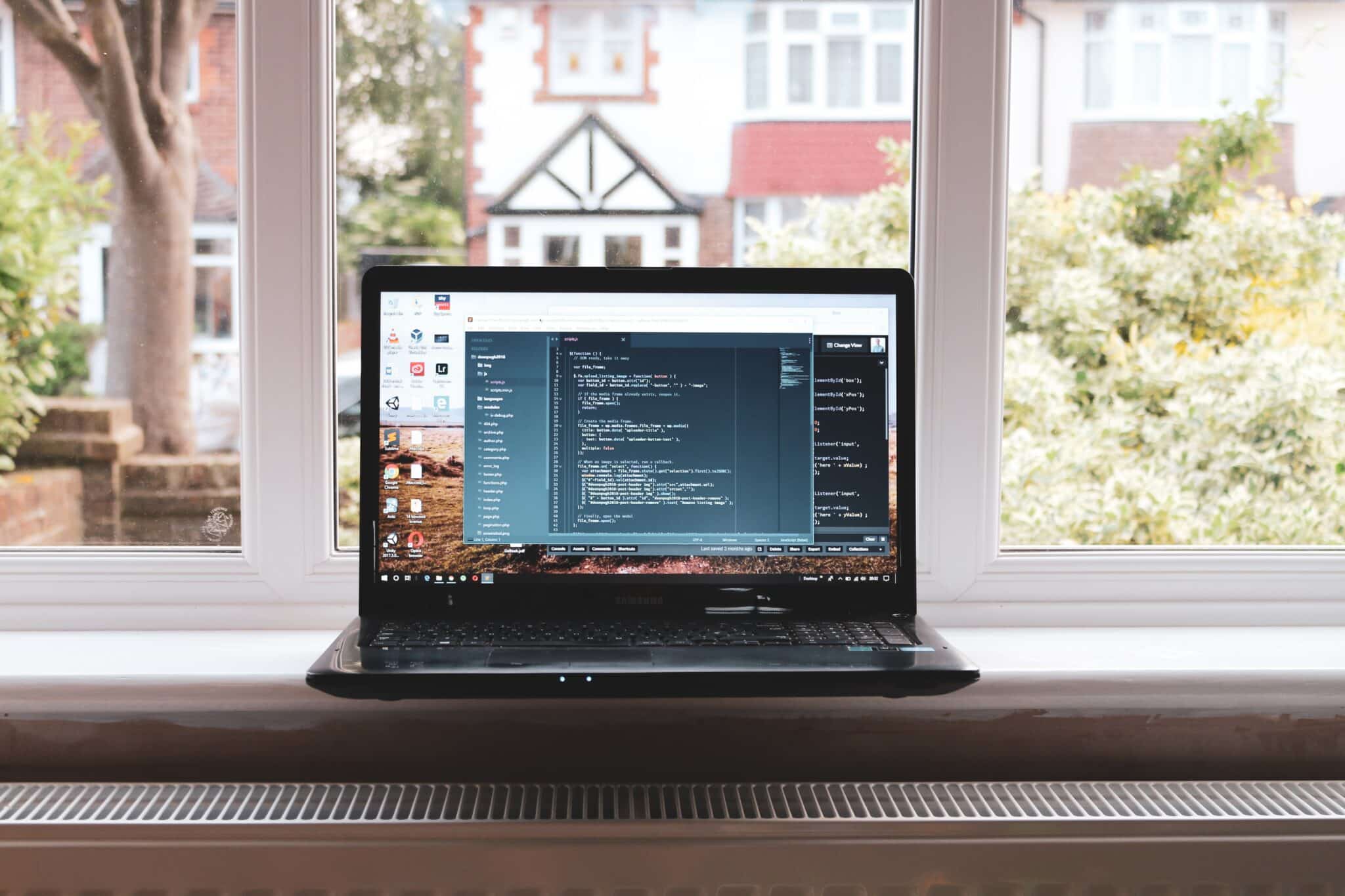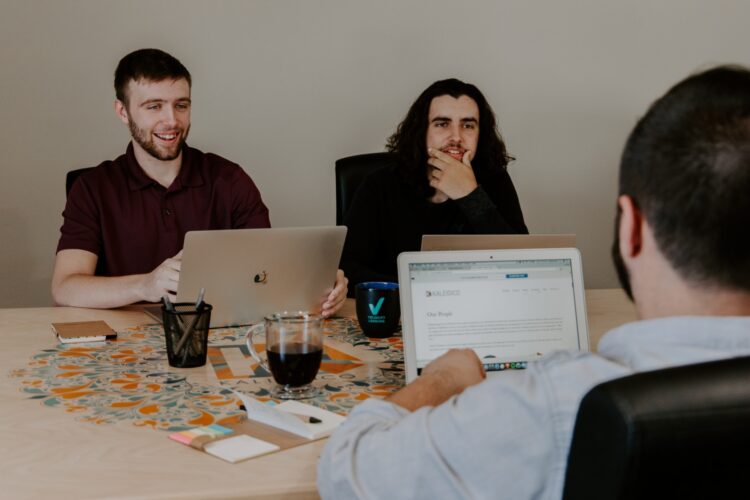How To Become An Android Developer? Here is the Plan!
Updated: June 19, 2024
Published: December 22, 2018

Want to learn how to become an Android developer? Look no further.
In this article, we’ll share the benefits of becoming an Android developer, the skills you’ll need to know, the salary you can expect to earn, and how to become an Android developer.
Read on to learn the steps to get started and build your first Android app.
Why Become an Android Developer?
According to The Verge, there are over 3 billion active Android devices in the world. It may come as a surprise (especially if you are in the United States, where it seems like Apple devices are everywhere). Yet, Android dominates the smartphone market with nearly 73% market share.
There is an abundance of opportunity out there to become an Android developer with so many Android phones and tablets across the globe. Moreover, since app development can be performed from any computer, it is possible to work from anywhere in the world. As an Android developer, you will also help build the future as society moves into a more digital, technological world.
If that’s not enough incentive, it pays (literally) to know that the average salary for an Android developer is roughly $99,249 annually, according to data from Glassdoor.

What to Expect as an Android Developer
One job perk of being an Android app developer is the ability to freelance. As a freelancer, you can either work for one organization or agency on your own schedule or take on individual clients seeking help from an Android developer. But if the more stable route is your preferred option, you could work as a Junior Android Developer, an Android Developer, or a Lead Android Developer in a company full-time.
As an Android developer, you will learn valuable skills, including how to use Java and XML, as well as how to use the Android SDK (Software Development Kit) and Android Studio. These skills will not only be useful in creating Android apps, but they are also transferable to other jobs in the field of computer science.
Why Android Over Apple?
First of all, as we mentioned from the start, there are more Android users than Apple users in the world.
Second, apps designed for the Apple Store can only be used on iPhones and iPads, whereas the Google Play Store apps can be downloaded on any Android device.
Right there, you will have a much wider audience for your new, innovative app.
How to Become an Android Developer
Ready to begin your journey of Android development?
Below are some tips to guide you through developing your very first Android app.
The Fundamentals
Like most things in life, it makes the most sense to start with the fundamentals. If you don’t already know how to code, learn to code. Here are a few resources for how you can begin to learn to code on your own.
Let’s say you are a little more advanced, already know how to code, but want to find a course in becoming an Android developer specifically. There are many courses out there. For example, Udemy has The Complete Android Developer Course: Beginner To Advanced and Udacity has Android Basics by Google. There are hundreds of online courses to choose from.
Another option to explore if you are really interested in making Android app development a career is to attend the University of the People. We provide online degrees, taught by some of the best in the business, so you can obtain either your Bachelor’s or Associate’s degree in Computer Science. University of the People is an excellent option since it is tuition-free, accredited, and can be completed from anywhere in the world since all courses are entirely online.
Your Android App Development Toolbox
Hard Skills
To become an Android developer, you’ll need to hone some hard (technical) skills. This starts by knowing Java and SQL because they are the two programming languages required to build an Android app.
Understanding Java will not only be beneficial for Android app development, but it will also be a beneficial skill to have in the job market. It is the most popular programming language used by software developers today. SQL will help you organize the databases within Android apps.
Additionally, you’ll need to understand how to use The Android Software Development Kit and Android Studio. This is where you will write your code, as well as take advantage of the existing pre-written codes available in the library.
The last hard skill for your toolbox is XML, which will help to describe data in your app.
Soft Skills
Along with the hard skills needed to become a successful and well-tuned Android developer, you’ll need to possess soft skills.
One of the most necessary soft skills for app development is perseverance, or the ability to keep going when things get tough or roadblocks appear (because trust us, this is bound to happen when you’re coding).
It’s also valuable to be able to collaborate with others. It is inevitable that at some point, you will have to collaborate and work with another person or team, whether it be a developer, designer, or any other professional in the field.
And, it goes without saying that the best Android developers are those who have the desire to keep learning. Technology is ever-changing, so you’ll need to constantly be learning what’s new, so you’re up-to-date with the fast-paced environment of the programming world.
If you are still looking for more information on Android app development, check out the Android for Developers site, your one-stop shop for everything in how to develop an Android app.

Source: Unsplash
Extra Tips for Your Developer Journey
Before you get going and become an Android developer, keep in mind these helpful suggestions:
Get Comfortable
It’s recommended to become comfortable with the Android application programming interface or API. The API is a source code library that provides packages or groups of classes that help developers write in code more easily.
Along with the API, get comfortable with the Android Software Development Kit (SDK) and download it. The SDK will have everything you need, from a code editor to an Android emulator, and even tools to test and debug your app.
Make Your Own App
Now is the time to take everything you’ve learned and mastered, from Java to the API packages, and put it to the test. You have what you need to build your own app. The next step is to start, practice, iterate and overcome whatever hurdles arise.
Build Your Community
When it comes to developing apps, it’s always recommended to join a community or forum in which you can pose questions to other experienced (or new) developers.
For example, you can check out The Coding Forums, where people can post their questions and receive answers about anything to do with code.
If you decide to pursue an Associate or Bachelor’s in Computer Science with University of the People, you will automatically have a built-in network of knowledgeable professors and students to help you on your journey to becoming an Android developer.
Having a community to work with will allow you to ask questions and use your network as a sounding board. Your community will teach you how they would solve the issue at hand. Learning from others is a great resource to have.
Gain Experience
It is also important to gain more experience to continue to grow as an app developer. Find training and workshops to go to in your area. Try using Course Horse to look these up or see what your local community college or community center has available.
Another idea for experience is to find an entry-level position or an internship if you are just starting out with programming.
Your Next Step Awaits
You now know how to become an Android developer. Is the future prospect of being an Android developer calling your name?
If you have yet to learn to code, then start there. If you know how to code, but you are missing the specifics about Android development, then get to learning the SDK and API. Should you wish to enroll in a tuition-free computer science degree, you can learn more about the student experience at the University of the People.
Once you’re ready to share your app with the public, remember that almost all people who use smartphones will have access to whatever you develop, so go forward with purpose and intention!
